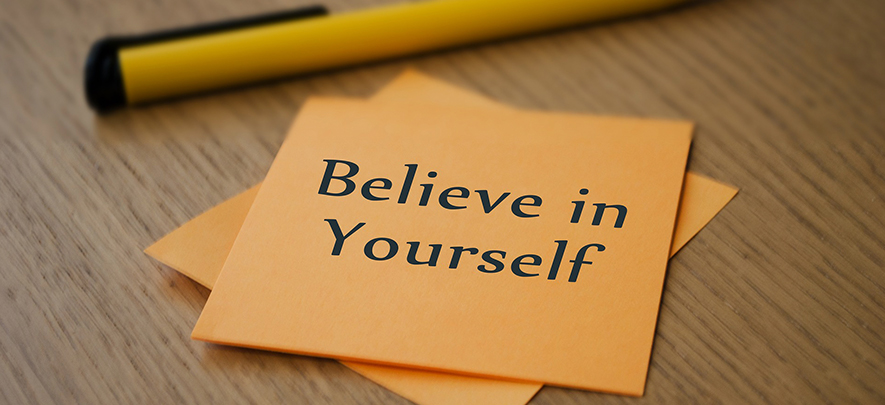The power of beliefs in work & life

Inspirational
362 week ago — 8 min read
Beliefs are an important component of our existence. They keep us going, they keep us alive. Beliefs help us assess the happenings around us and influence the actions we take. You could never be without beliefs, nor would you want to be. What is however important is to identify the beliefs that work for you. To choose the lens you will view the world through. And here your choices are unlimited. Perhaps you have a pretty clear idea of what you want to improve in your life - such as improving your communication skills or starting your own business, and you have begun to take a good look at the available options. You may have already formulated a plan but have somehow never really gotten around to carrying it through. Frustration is showing up because the plan is a good one and you really want to put it into action. But there’s no reason for you to beat yourself up over it and assume that you are either weak or lazy. The good news is that the reason you feel blocked may have nothing to do with weakness, laziness, or any other limiting trait but because of some beliefs buried deep down.
Understanding how your beliefs shape you
An individual can lack resources and their future plans can be hazy, yet if their motivation is right and if they really believe in their abilities, their plans can blossom. History is full of men and women who defied the odds and overcame seemingly insurmountable obstacles to reach their goals. All of these people had one thing in common; an unshakeable belief that they were exactly the right person at exactly the right moment in time to achieve whatever they set out to do, whether scaling an impossible mountain or winning a marathon or maybe winning an election.
A belief is simply a feeling of conviction about something, specifically about oneself, and strong positive beliefs are the foundation for action. Holding negative beliefs or ones that no longer serve any purpose, has the opposite effect and keeps a person stuck. A person’s inner critic specializes in these destructive beliefs and can produce them at the drop of a hat.
Beliefs are tricky things. For the most part they tend to appear logical and water-tight but entire communities have built their worldview on beliefs that were later proved wrong. For example, the world isn’t flat, but people used to believe that it was, and wasted a lot of energy in formulating strategies to avoid falling off the edge.
Origin of our beliefs
Some of the beliefs we hold go right back to childhood. When we were very young we genuinely held the acceptance that our parents knew the answer to everything. And then there were reports related to our personality, capabilities, intelligence and performance. At times we may have behaved that way in class but overarching negative labels can have a way of sticking with us. They can become a part of our identity long after we’ve become hard-working and focused adults. Beliefs learned or ‘given to us’ in childhood can be very powerful indeed, and if negative, they can really hold us back from seeing and fulfilling our true potential.
Sometimes our firmest beliefs can be overturned in an instant. Almost everybody can think of instances when something they believed in turned out to be completely different in reality. Having a ‘core belief’ overturned like this challenges our belief system and makes us begin to question many things we’ve always held to be true.
Sometimes concepts that we pick up may be incomplete or misleading. Most of us at some time have formed an opinion about someone just from what a friend told us, and later found out that there was a lot more to the situation than the small bit of information we had learned.
Realising that our assumptions can be wrong need not turn us into a non-believer. But we can see how our strongly held beliefs propel us into acting with conviction, for good or ill. Choosing different beliefs that may challenge us but move us forward in achieving our goals make good sense. The beliefs that hold us back are no truer than the beliefs that spur us into positive action, so why not choose to focus on the beliefs that get the impressive results we want?
What are our beliefs?
Many of our convictions are so much a part of us that we rarely have a good objective look at them. A quick glance isn’t always enough, because at face value all of our acceptances may look perfectly reasonable. Building a strong positive belief system starts with dusting off each one of those beliefs and taking the time to truly examine them. Only then can we decide which beliefs are still necessary for us to hold on to and which ones are no longer required for our onward journey.
Set aside some quiet time and ask yourself the following questions. Write down everything that occurs to you as you answer the questions. Don’t worry too much at this stage about the whys and wherefores. Simply capture what seems to you to be the truth, pleasant or unpleasant.
What do you believe about yourself?
- For example, ‘I am smart.’ ‘I am emotional.’ ‘I am lovable.’ etc.
What do you assume is possible in your world?
- For example, ‘I can do anything I set my mind to?’ ‘I will not be able to get a job.’ etc.
What do you conclude about other people’s relationships to you?
- For example, ‘People are supportive.’ ‘People don’t understand me.’ etc.
What do your beliefs give you?
All the beliefs you hold are likely to feel very real to you. Even negative and destructive beliefs exist for a reason. At some point you have gathered evidence that supports everything you believe. If you are convinced that you are hopeless at sports, that is probably because you have some compelling examples of it. If you have had more negative examples than you have instances where you performed well, you have probably grown accustomed to looking only for the evidence that supports your negative belief about your sporting ability. You may avoid sports because you hold onto the belief that protects you from failing or looking silly. In reality, you are almost certainly able to become quite capable at sports if you want to do so enough and are willing to put in the practice and effort required.
Our most limiting beliefs about ourselves may get in the way of any action we need to take. But many of us are surprisingly attached to our misconceptions and are reluctant to let them go. That is because our beliefs serve us in some way. If we believe that we are not bright enough to get a job or a promotion, then we give ourselves permission not to try. Your limiting conclusions have a function, but a very limited one. Your empowering acceptances on the other hand, serve you far better by helping you to expand the range of what is possible in your world. What you choose to believe and act on will shape your destiny.
To explore business opportunities, link with me by clicking on the 'Invite' button on my eBiz Card.
Disclaimer: The views and opinions expressed in this article are those of the author and do not necessarily reflect the views, official policy or position of GlobalLinker.
View Tridib 's profile
Other articles written by Tridib Bhattacharjee
Importance of coaching to help SMEs grow
353 week ago
Most read this week
Trending
Ecommerce 7 days ago











Comments
Share this content
Please login or Register to join the discussion